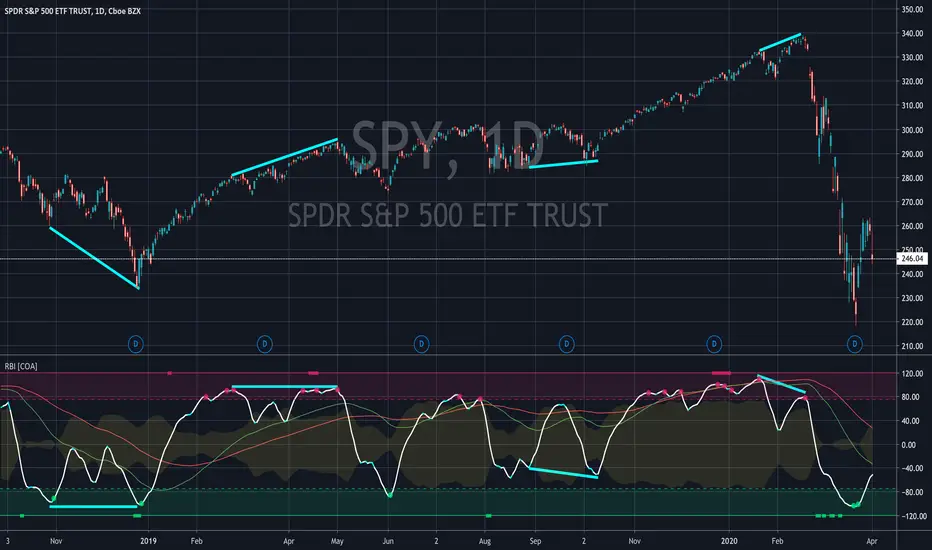Relative Breadth Index

Relative Breadth Index has 4 main components:
- Fast (White), Medium (Green), and Slow (Red) Oscillators
- Overbought and Oversold Thresholds (Shaded Areas)
- Pulse (Yellow)
- Divergence Indicator (Rectangles)
How does it work?
- The Medium and Slow Oscillators indicate the general trend.
- The Fast Oscillator shows what price action is doing in reference to that trend.
- Pulse suggests the probability that the current move (Fast) is an end of the trend defined by the Medium and Slow lines.
- The Divergence Indicator also suggests a reversal and to look for divergences between the Fast line and price action.
What are the signals?
- In general: green signals are bullish, red are bullish
- Rectangles: Look for a divergence
- Circles: Sell and buy signals
- Triangles: Stronger sell and buy signals
- Triangles: Reversal signal
What about the Pulse?
- If Pulse is low, a signal may only be a short-lived move.
- If Pulse is high, a signal may be a full-on trend reversal.
For access, please DM us or visit the link below in our Signature.
Invite-only script
Only users approved by the author can access this script. You'll need to request and get permission to use it. This is typically granted after payment. For more details, follow the author's instructions below or contact CoinObservatory directly.
TradingView does NOT recommend paying for or using a script unless you fully trust its author and understand how it works. You may also find free, open-source alternatives in our community scripts.
Author's instructions
For access to our TradingView scripts, visit us at
linktr.ee/coinobs
Disclaimer
Invite-only script
Only users approved by the author can access this script. You'll need to request and get permission to use it. This is typically granted after payment. For more details, follow the author's instructions below or contact CoinObservatory directly.
TradingView does NOT recommend paying for or using a script unless you fully trust its author and understand how it works. You may also find free, open-source alternatives in our community scripts.
Author's instructions
For access to our TradingView scripts, visit us at
linktr.ee/coinobs